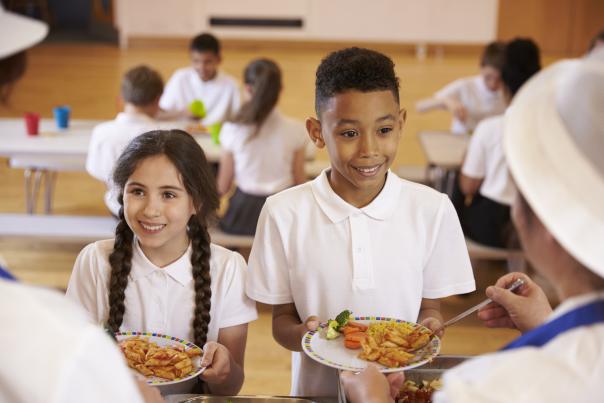UNESCO report calls for better quality school meals

The report states that although many pupils have access to school meals, not enough emphasis is placed on the nutritional value of the produce used. UNESCO advocates the use of healthier and more nutritious foods, and the inclusion of food education in school curricula.
Audrey Azoulay, director-general of UNESCO, said: "Thanks to investments made in recent years, nearly half of the world's primary school pupils now have access to school meals. But we need to go further and look at what is on their plates. The focus should be on balanced meals made with fresh produce, and teaching children good eating habits to ensure they grow up healthy. It’s a major issue for health and education.”
According to the report, around a quarter of the world's pupils benefited from school meals in 2024. This figure rises to 47% at primary-level. School meals increase enrolment rates by 9% and attendance by 8% among pupils.
In 2022, nearly a third (27%) of school meals worldwide were not designed in consultation with nutritionists. Only 93 countries out of the 187 that were evaluated had legislation, standards or guidelines on school food and drink. And of these 93 countries, only 65% had standards governing the sale of food and drink in school cafeterias, food shops and vending machines.
UNESCO says the lack of standards and monitoring of the content of the food served to pupils should be a major concern, given that the rate of obesity among school-age children has more than doubled in most countries since 1990 and that food insecurity continues to increase throughout the world.
Daniel Humm, UNESCO’s goodwill ambassador for food education since September 2024, a three Michelin-starred chef, added: “Schools must be a place where healthy habits are cultivated, not undermined.
“Eating locally produced, fresh school meals, delivered by informed school nutritionists is part of a child’s education. It is an active lesson that will drive their relationship with food and empower them to make informed food choices in the future that are good for their health and the planet.”
UNESCO highlights several positive initiatives to improve nutrition at schools around the world:
- In Brazil, the national school feeding programme, has recently introduced restrictions on ultra-processed products.
- In China, reforms introducing vegetables, milk and eggs in rural schools have increased children's nutrient intake and helped to boost school attendance.
- In Nigeria, the Home-Grown School Feeding Programme launched in 2014, which aims to provide a free, balanced meal every day in all public primary schools, has increased the primary school enrolment rate by 20%.
- In India, the introduction of fortified organic pearl millet, rich in iron, into school meals in the state of Maharashtra has improved the attention span and memory of adolescents.
UNESCO encourages Governments and education stakeholders to provide school meals based on fresh, local produce and to reduce the presence of sugary and ultra-processed foods. Read the full report here.
